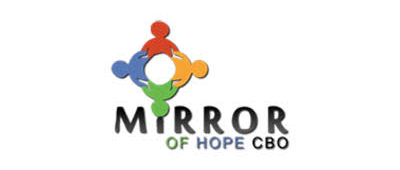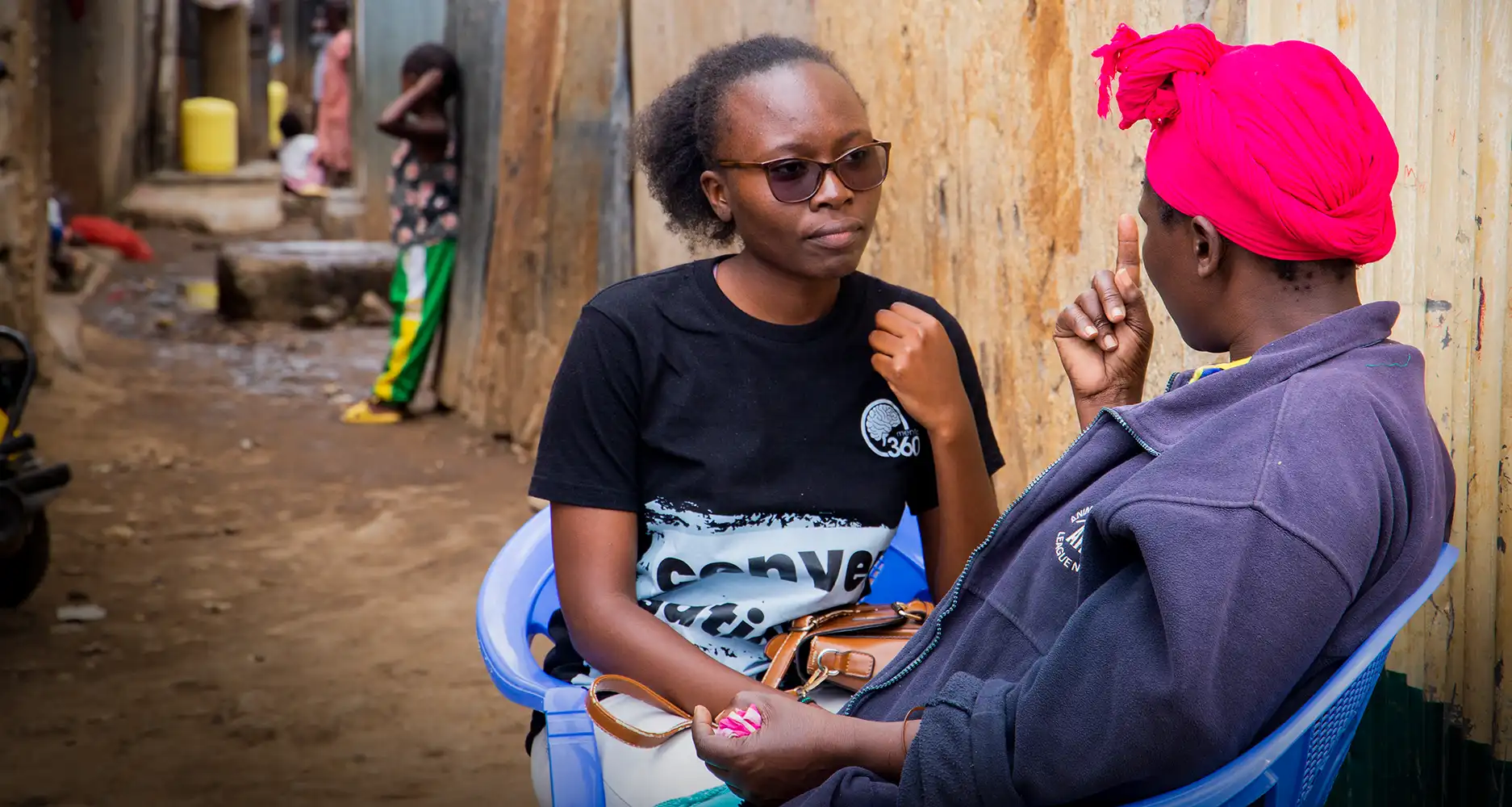Youth in Kenya face the highest Mental health risks, here is why:
75% of Kenyans lack access to mental health care services.
50% of Kenya's population are youth.
25% of Youth grapple with mental health challenges by the age of 24.
Our Solutions
Increasing access to quality Mental Health Support by leveraging peer-based approaches and technology for the youth.
Psychosocial Support Helpline
Our national helpline service is available for individuals in distress, in emergencies, and in need of mental Health Support.
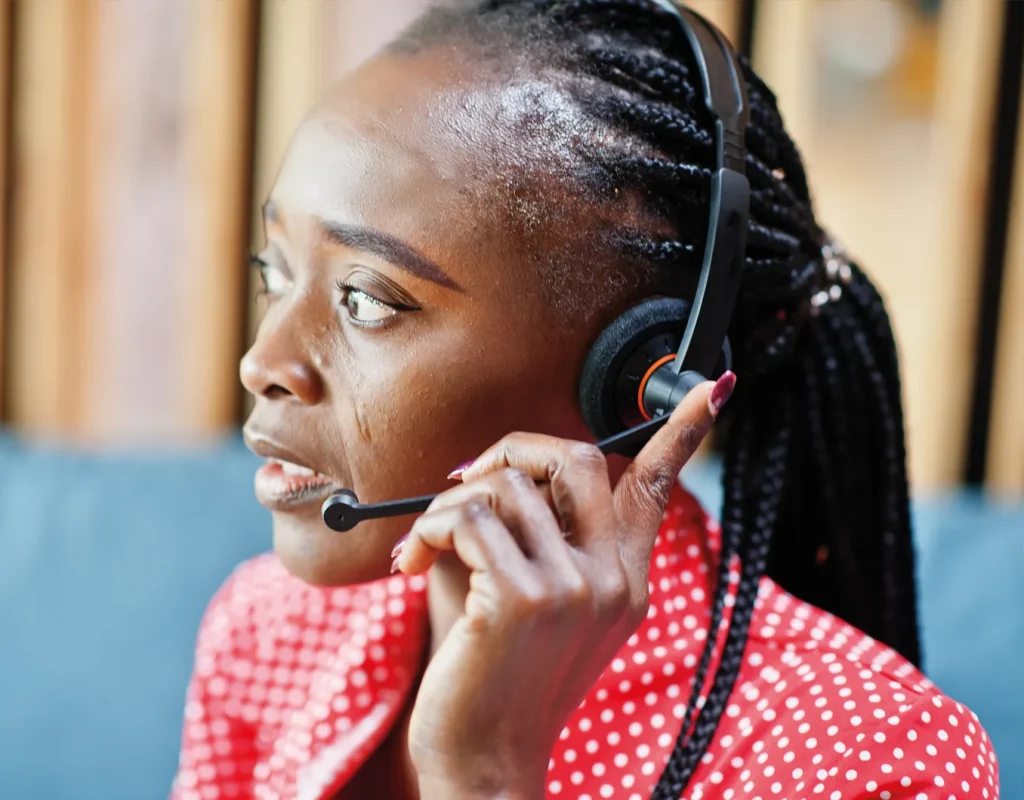
School Wellness Clubs
We have established student-led school wellness programs tailored to student's needs with the aim of strengthening awareness and Mental Health support systems in schools.
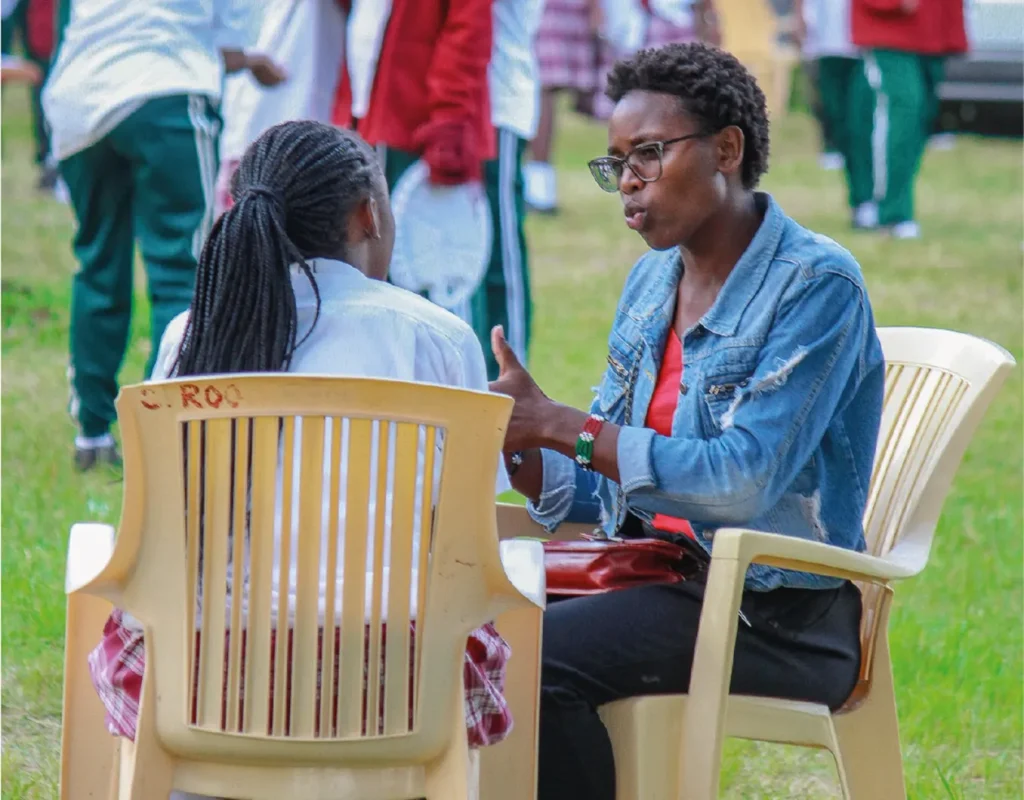
Community Wellness Centre
Our Community-led wellness centers provide access to Mental Health Support, psychoeducation, referral, and Mental Health support groups.
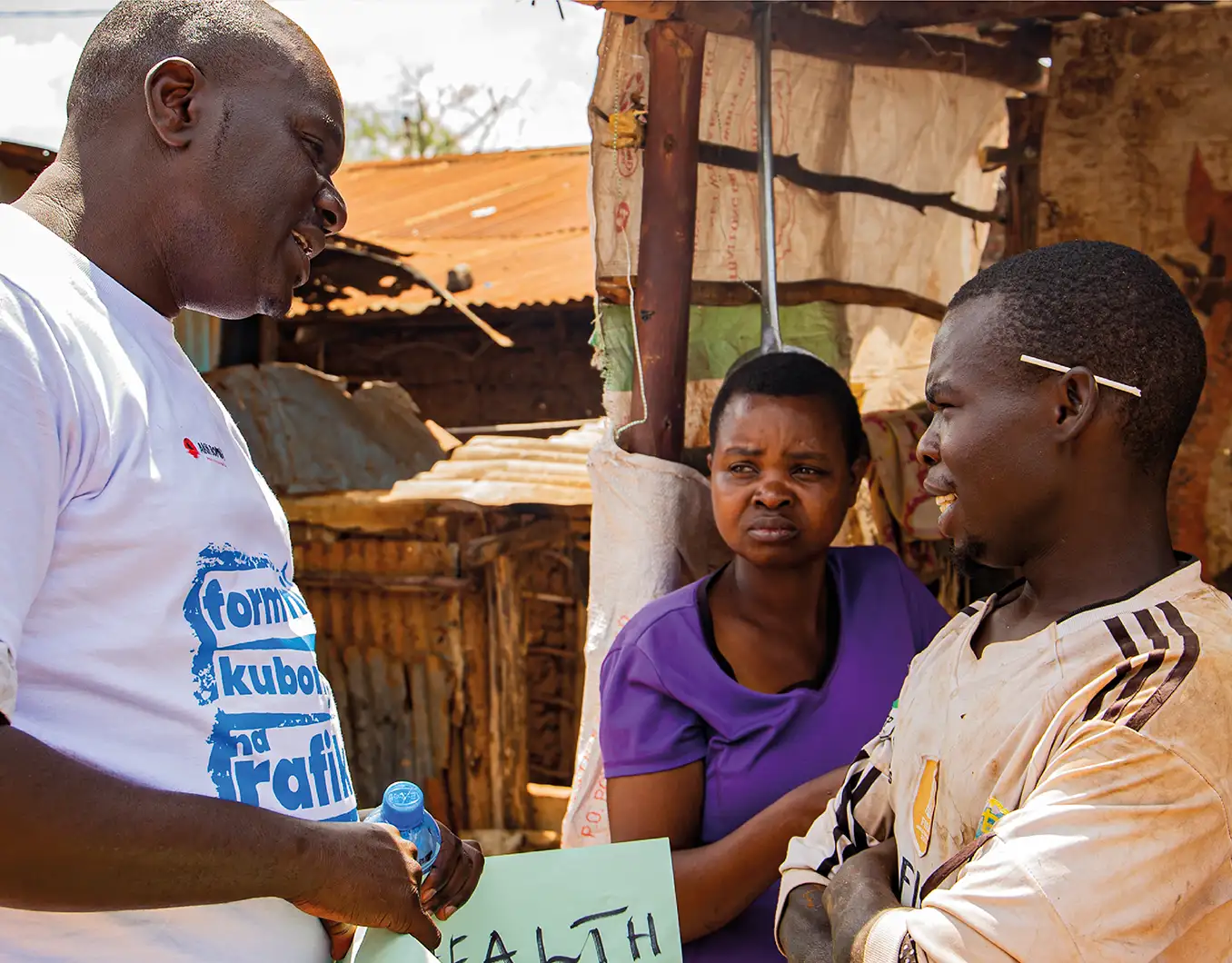
Cradle Arts Festival
Organized annually in collaboration with various artists, the event and program celebrates art and creativity in our community using art as a tool for advocacy, to increase awareness about Mental Health & Wellness and to celebrate Mental Health survivors.
Our Impact
Low literacy, stigma, and limited access to mental health resources have resulted in poor mental health outcomes among 80% of Kenyan society and the youth are the most at risk. We focus on peer models and technology to address this problem.
People reached directly, serving 300,000 people indirectly
People reached through our awareness activities
Community wellness centers
Youth/peer mental health champions trained
Journey With an Impact
Mental 360 was born out of Bright Shitemi's mental health experience in 2016. His vision was to raise awareness, create safe spaces, and offer holistic support to underserved communities facing mental health challenges.
Beginning of Mental 360
Bright gets the idea to start Mental 360 after a brush with depression. He forms a community of youth with lived experience and starts using their stories to raise mental health awareness.
Registration and Services
Mental 360 gets registered, begins offering therapy services and sets up a national mental health helpline service.
International Recognition
Mental 360's proven community mental health model receives international recognition from Africa Yes and Meta (Facebook Accelerator), and wins awards for Best Social Impact Organization and Best Growth Plan Idea (Boma Wellness App) respectively.
Growth Phase
Having refined her model, Mental 360 enters its growth phase having served 300,000 people. She aims to reach 10 million plus people in the next decade.
Growth Plan - To Serve 10 Million Plus Youth By 2034
Mental 360 has prioritized strengthening and building new collaborations with key stakeholders. Our commitment to expanding impact and leveraging technology aims to reach more youth and communities with essential mental health support services and resources.
Our strategic priorities include:-
We are enhancing program scalability and sustainability
We are deepening community engagement, and advocating for systemic changes to improve mental health services and access. We have carried out proof of concept work in our School wellness and Community wellness centre programs that are ready to scale. We have engaged the Government through the Ministries of Education, Interior Security, and The Kenya Institute of Curriculum Development for accreditation and partnership to scale.
We are deepening community engagement, and advocating for systemic changes to improve mental health services and access.
We are engaging key stakeholders to ensure community buy-in as we psycho-educate, empower, and capacity-built youth with lived experiences. Through this engagement, we are establishing partnerships and supporting the creation of access channels for these stakeholders for the youth. With this approach, we expect systems change that is adaptive and holistic and a gradual but drastic reduction in stigma at the community level.
We are leveraging technology to build digital wellness communities at scale.
We aim to ensure access to mental health support at the touch of a button. Through our Facebook Accelerator social innovation award-winning growth plan product Boma, we are leveraging the 80% internet and smartphone penetration among youth in Kenya to improve access to mental health care. Boma will also be an enterprise vehicle to help us reduce donor reliance by 70% over the next decade.
Testimonials
"The BOMA Wellness training sessions have equipped me with skills to manage my mental health in school. I have also managed to support 3 peers relating to their mental health challenges. I am excited about the school wellness community as we will be able to support fellow students."
Student, Anonymous
Boma Wellness Clubs
"Our collaboration with Mental 360 has sparked significant change within our community. The training offered to our staff and volunteers has proven invaluable, equipping them to support those in need. Additionally, our beneficiaries have eagerly embraced these opportunities and discovered a safe environment to discuss their challenges openly. This has fostered a culture of openness and support, strengthening the bond between staff and students in our sponsorship project."
Janedellis Mbae
Peoples and Partnerships Lead, Mirror of Hope
"I have a lived experience of suicide for a long time with no support system. Mental360 has provided a community where I can access support without stigma. I am better and now empowered through the Mental 360 training to raise awareness in my community and support my Peers."
Griffin Chege
Nakujali Rafiki Project
Donor Partners

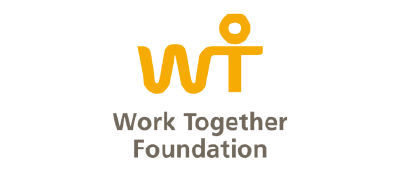



Community Partners




